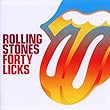 There is something still wonderful about Jagger being so compelling a figure—desired, envied, respected—without being likable. Mick Jagger’s sensuality has no savoring softness and his sorrow has no sensitivity—his is a very modern temperament. (It is possible he synthesized the eloquence of British literary tradition with the hedonistic license of the blues and the experimental openness of modern art.)
There is something still wonderful about Jagger being so compelling a figure—desired, envied, respected—without being likable. Mick Jagger’s sensuality has no savoring softness and his sorrow has no sensitivity—his is a very modern temperament. (It is possible he synthesized the eloquence of British literary tradition with the hedonistic license of the blues and the experimental openness of modern art.)
A review of Neil Young: Heart of Gold
The film is directed in a restrained, unostentatious manner, with the camera serving the music as it rests on Young, Emmylou Harris (a guest artist here) and the musicians in the band. The camera’s focus is straight and direct. It…
A review of The Visitor by Maeve Brennan
Brennan writes this kind of emotional turmoil with lightness and depth, evoking the wrenching fear and panic that true loneliness induces. Neither excusing nor explaining Anastasia’s heightened sense of self-preservation, Brennan’s is a powerful and compassionate voice, one that haunts…
The Lasting Icon: Elvis Presley and his 30 #1 Hits
< Hearing Elvis Presley’s songs again, I become aware that a song can break your heart—and it’s not always the song you think it is going to be or for the reason you expect. A song can remind you, as it has me, of a time when you were younger, when you took much for granted, and you can weep at that kind of innocence, even though innocence—or ignorance—came to cause you so much pain.
Hearing Elvis Presley’s songs again, I become aware that a song can break your heart—and it’s not always the song you think it is going to be or for the reason you expect. A song can remind you, as it has me, of a time when you were younger, when you took much for granted, and you can weep at that kind of innocence, even though innocence—or ignorance—came to cause you so much pain.
Howlin’ Wolf and the Blues, Then and Now
Most of the songs on Howlin’ Wolf’s self-titled collection released in 1984—and which apparently corresponds to Wolf’s second album for Chess Records—were written by songwriter-musician Willie Dixon. A favorite song of mine, “Who’s Been Talkin’,” was written by Howlin’ Wolf,…
1987/2007: the 20th anniversary of Introducing the Hardline According to Terence Trent D’Arby
 Terence Trent D’Arby’s intelligence is transparent. Was he too intelligent for American audiences? Was it his lack of humility that alienated, or his intelligence? (Many people prefer artists to pretend as if their mastery is accidental, rather than a focus of ambition, consciousness, and will.) Was D’Arby’s elastic sense of identity alienating?
Terence Trent D’Arby’s intelligence is transparent. Was he too intelligent for American audiences? Was it his lack of humility that alienated, or his intelligence? (Many people prefer artists to pretend as if their mastery is accidental, rather than a focus of ambition, consciousness, and will.) Was D’Arby’s elastic sense of identity alienating?
Edward Norton in The Illusionist
 In The Illusionist he has a glamour I do not recall him having before, and he seems supported in the film The Illusionist in novel ways (that may be because of the kind of initiative and independence his character has, and that most of the other characters are compelled to respond to him). Edward Norton does not present the same personality from film to film; he is an actor who creates characters and yet he has become a leading man—and, in The Illusionist, he manages something that seems a little bit subversive.
In The Illusionist he has a glamour I do not recall him having before, and he seems supported in the film The Illusionist in novel ways (that may be because of the kind of initiative and independence his character has, and that most of the other characters are compelled to respond to him). Edward Norton does not present the same personality from film to film; he is an actor who creates characters and yet he has become a leading man—and, in The Illusionist, he manages something that seems a little bit subversive.
A review of Why Lasker Matters by Andrew Soltis
Yet surely the chief reason, the darkest cloud obscuring Lasker’s greatness, is to be found in the myths concerning his play. It has been said that he would deliberately play “bad” moves to unbalance the position in a game, that…
Interview with Tracy Repchuk
 The author of The Poetry of Business talks about her book, the power of poetry, the corporate crisis of meaning, her intended audience, Poetry Canada, and lots more.
The author of The Poetry of Business talks about her book, the power of poetry, the corporate crisis of meaning, her intended audience, Poetry Canada, and lots more.
A review of The Well-Fed Self-Publisher by Peter Bowerman
Bowerman has a particular strength in persuasion, and if you haven’t bought this book because you’ve already decided to self-publish, the first chapter will convince you why you need to. There are a number of other books on self-publishing, some…